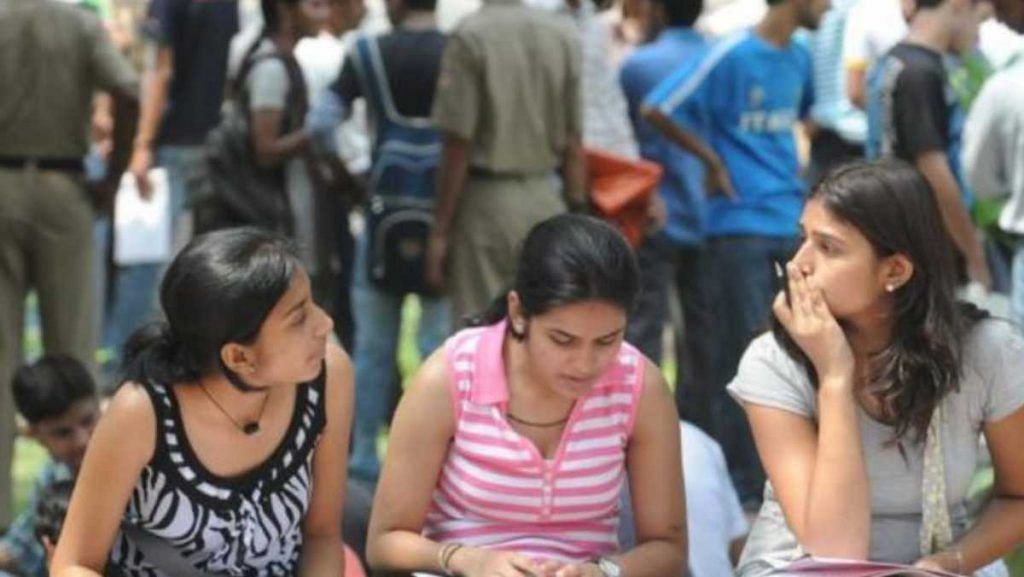New Delhi: The Narendra Modi government is working towards granting validity to one year postgraduate (PG) programmes from foreign universities, ThePrint has learnt.
Currently, such programmes from foreign universities are not valid for getting admission in higher education courses or government jobs as PG in India is a two-year course. But the government is now planning to change it by equating credits with the duration of the course.
For example, if a one year PG programme from a foreign university has the same number of credits as a two-year programme in India, it will be considered valid, Pankaj Mittal, Secretary General, Association of Indian Universities (AIU), told ThePrint.
When a student completes a certain duration of a course, he or she earns fixed credits. For some courses, one semester can consist of 20 credits, for others it can be 40 credits as well, involving a lot more course work and study time.
Also read: Indian colleges see spurt in applications as Covid forces students to ditch foreign plans
Equating credits with duration
The AIU, a society that works as a mediator between universities and the government (Central as well as states), has been given the task of equating foreign degrees with Indian degrees by the Ministry of Education. The AIU has 810 universities as its members at present.
“Many universities like Oxford and Cambridge are giving one year degrees, but their degrees are not getting equated in India, but now AIU is shifting from duration approach to credit approach. So if there are sufficient credits in a course, then we can give a degree,” Mittal said.
This is one of the ways in which the government is working towards internationalisation of education in India — a point also detailed in the new National Education Policy.
“If we want to achieve internationalisation of education in India, we need to be more proactive in recognising foreign degrees in our country,” Mittal added.
She also informed about other steps that the government is taking to make India a recognised global study destination.
“We are also working towards building a consortium of international educators — it will have members from universities who have some kind of international partnership, bodies that can guide institutes to become international and universities that want to become international, but have no idea how to do so,” she said.
The idea behind this consortium is to guide the universities into becoming international, have more tie-ups, get foreign faculty, plan semester exchange, student exchange and even joint degree programmes.
Setting campus in India
Another plan, which is in the works, is getting foreign universities set up their campuses in India. It has also been mentioned in the new NEP and Prime Minister Narendra Modi has also spoken about it.
An official in the Ministry of Education told ThePrint that the discussions have already started and committees have been formed to see how the plan can take off.
“There can be two ways of doing this. The government will have to either bring in a bill or a regulation. Then we will have to see what all can be allowed under the provisions,” said the official.
“We will also need to see which universities are willing to come to India. Universities like Harvard and Cambridge will be difficult because they do not open campuses anywhere. Harvard tells students that if you want to experience the university, come to Harvard. We also had a webinar with some of the top universities recently and they were a little reluctant on setting up campuses in India. They were more comfortable with joint degree programmes,” the official added.
He said fee regulation for foreign universities will be a tough task and the Indian government cannot have much say in that aspect, otherwise it will deter universities from coming to India.
Another official, who is privy to the developments, counted the benefits of foreign institutions setting up campuses in India.
“How foreign universities will come to India will be decided over time, but I can count the benefits of it and why the government is thinking of it in the first place… If foreign institutes set up campuses in India, we will be able to save on the two billion dollars that Indian students spend every year going abroad. The outflow of currency will be stopped,” the official said.
“Second, the cost of living in India is less, hence the per student cost of a student enrolled in a foreign university’s India campus will be less. Apart from this, it’s beneficial for our own institutes as well… They can have joint degree programmes. It will also make the Indian institutes more competitive and all of them will work towards excellence,” the official added.
Also read: Foreign dream will have to wait as Covid-19 layoffs in US cast shadow on IIT, IIM placements
